I am developing an application where I need to schedule a task, so I am using AWS Lambda for it.However, the scheduled time is dynamic, since it depends on the user request, it can't be scheduled using AWS Console, so I use AWS Javascript SDK to schedule it. This is the flow:
- Create a CloudWatch Rule (this is successful, I can see the rule being created in the console
- Add permission to the policy of lambda, so that cloudwatch event can invoke it (Lambda function code is same for all request, so I created a lambda function in AWS Console instead of using SDK)
- Add target to the rule created in Step 1 (this step fails). The error i get is RoleArn is not supported for target arn:aws:lambda:eu-west-1:629429065286:function:prebook.
Below is the Node.js code I wrote
schedule_aws_lambda: function(booking_id, cronTimeIST, callback){
var event = new AWS.CloudWatchEvents({
accessKeyId: accessKeyId,
secretAccessKey: secretAccessKey,
region: 'eu-west-1'
});
var lambda = new AWS.Lambda({
accessKeyId: accessKeyId,
secretAccessKey: secretAccessKey,
region: 'eu-west-1'
});
var year = cronTimeIST.utc().year();
var month = cronTimeIST.utc().month() + 1;
var date = cronTimeIST.utc().date();
var hour = cronTimeIST.utc().hour();
var minute = cronTimeIST.utc().minute();
var cronExpression = "cron(" + minute + " "+ hour + " " + date + " " + month + " ? " + year +")";
var hour_minute = cronTimeIST.format("HH_mm");
var ruleParams = {
Name: 'brodcast_' + booking_id + '_' + hour_minute,
Description: 'prebook brodcast for ' + booking_id + '_' + hour_minute,
ScheduleExpression: cronExpression,
RoleArn: 'arn:aws:iam::629429065286:role/service-role/prebook_lambda_role',
State: 'ENABLED',
};
event.putRule(ruleParams).promise()
.then(data => {
var lambdaPermission = {
FunctionName: 'arn:aws:lambda:eu-west-1:629429065286:function:prebook',
StatementId: 'brodcast_' + booking_id + '_' + hour_minute,
Action: 'lambda:*',
Principal: 'events.amazonaws.com',
};
return lambda.addPermission(lambdaPermission).promise();
})
.then(data => {
var targetParams = {
Rule: ruleParams.Name,
Targets: [
{
Id: 'default',
Arn: 'arn:aws:lambda:eu-west-1:629429065286:function:prebook',
RoleArn: ruleParams.RoleArn,
Input: JSON.stringify({booking_id: booking_id})
}
]
};
return event.putTargets(targetParams).promise();
})
.then(data => {
callback(null, data);
})
.catch(err => {
callback(err)
});
}
I know it has to do something with the Role which doesn't have some permission, I can't figure out the exact cause, I have given the following access for the role 
And this is the policy document
{
"Version": "2012-10-17",
"Statement": [
{
"Effect": "Allow",
"Principal": {
"Service": "lambda.amazonaws.com"
},
"Action": "sts:AssumeRole"
},
{
"Effect": "Allow",
"Principal": {
"Service": "events.amazonaws.com"
},
"Action": "sts:AssumeRole"
}
]
}
Basically, I want to attach many triggers(the trigger time is not known to me it depends on user request) to the lambda function, however, lambda function code is same for all.